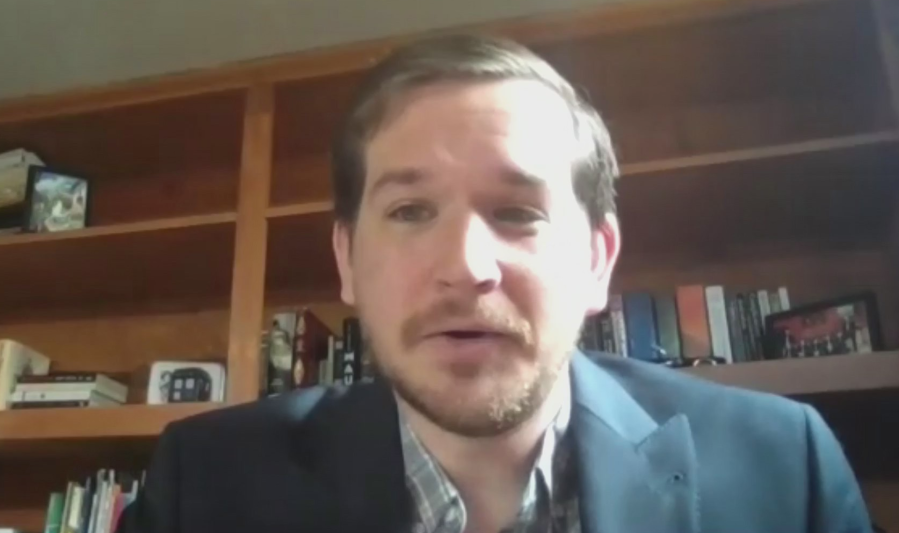PORTLAND, Ore. (KOIN) — It’s proven too hard for Americans to control COVID-19 by modifying our behaviors. The available and approved vaccines are the only way doctors say will stop this ongoing pandemic.
Epidemiologists, doctors, scientists and public health officials like Cowlitz County Deputy Health Officer Dr. Steven Krager all say we’re in a race to reach herd immunity. But that would require nearly all eligible people 16-and-older to be vaccinated.

“If we don’t vaccinate enough people, COVID-19 could be a constant threat,” Krager told KOIN 6 News. “I mean at a certain point we may still move forward as a society and have some sense of normalcy, but COVID-19 could always be there in the back of our minds and that sounds pretty terrifying in a lot of ways.”
His other concern is the more infections there are in the US or globally, it increases the chances the virus will mutate further. Variants become problematic when they change to become more transmissible or more deadly.
Anyone who chooses not to get vaccinated is an open opportunity for the virus to mutate, Krager explained. Even if that person isn’t hurt by the virus, they could play a role in extending the pandemic.
In order to move forward, doctors say, we have to keep people out of hospitals. The real world evidence of the vaccines have been proven 95% to 97% effective in preventing hospitalizations and death from COVID.
Dr. Krager doesn’t think we’ll be able to fully eradicate COVID-19, meaning it could become endemic.
“We probably won’t reach true herd immunity due to the nature of COVID-19 being such a sneaky virus,” he said. “It’s going to be around because it can pass asymptomatically.”
Victory in this pandemic right now won’t be zero cases, victory will be making it extremely unlikely to catch. If American’s can close to herd immunity, Krager said we wouldn’t have to wear masks, live concerts and sporting events would happen again and parents wouldn’t have to worry about their kids getting sick at school.
“If we don’t vaccinate enough people as quickly as possible and the more this virus can mutate — we could get worse variants — worse than the UK variant, more transmissible, more deadly, affect younger people, a lot of unknowns,” Krager said. “I don’t want to fearmonger or anything, but it is in the back of my mind that something like that could happen.”
Now that everyone older than 16 is eligible to get a vaccine shot, Krager said this is the pivotal point in the pandemic.
The point of herd immunity gets us to a point where COVID can no longer circulate in our community in mass numbers. Getting vaccinated not only protects you, he said, it protects others around you.
But as far as getting to that point — Krager said we don’t have an exact timeline.
“If we get 60-70 percent of the U.S. population vaccinated – which is possible by June or July – we should see rates go down quite a bit,” he said. “It will take some time once everyone is fully vaccinated before we see the full impacts.”
Worldwide, however, the timeline is longer. Some countries are just getting their own vaccination programs started.
“It is worth noting this would not be true herd immunity, which is when we are vaccinated enough that the virus is essentially eliminated. It would be close to that,” Krager said.
He said as a population, we still may need to be somewhat flexible where we see flare-ups of cases. There may be times we have to go back to some precautionary measures, but he said hopefully that we would be able to avoid widespread restrictions.
“We do really need to come together and face this as one people. Otherwise, I’m really concerned,” he said.
Dr. Krager explained that the disillusionment many people are feeling about life nowadays is a normal response following a crisis, especially one this long. He hopes everyone can fight through those negative feelings and fatigue.
“We have a chance right now to respond in a different way and come together one more time and get enough people vaccinated,” he said. “Then, we can really put this behind us.”